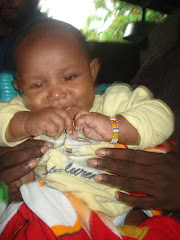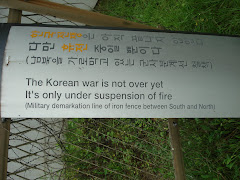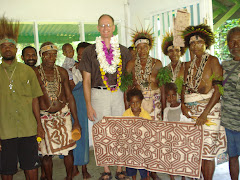
I have been beyond the reach of electricity for much of the last six weeks: thanks for the concern some of you have expressed!
But it has been a really great time. I had to go to the Solomon Islands in September to preside at a special chapter for the drafting of Provincial Statutes and the election of a new Minister Provincial (see brothers celebrating at Hautambu at right); then I did the same in Papua New Guinea in October.
Frankly I was dreading the drafting of statutes. Whenever reference was made to statutes in the past I felt a sense of frustration, as if looking at statutes was the court of last appeal, a sign of imaginative failure. Here I was to be the prime mover in a writing exercise with a large group of men who rely more on an oral tradition, and by their own admission never felt the lack of a statute to be of any importance! What goes around comes around as they say… At left
 the PNG brothers prepare to write statutes!
the PNG brothers prepare to write statutes! But we plunged in nevertheless, willing to be obedient to the SSF Constitution. I quickly discovered that what we were doing was writing a story about their life in the province. Every rule rests on the collected memories of the brothers about things that have worked in the past, and of course the things that didn’t work. The areas of confusion and frustration in their common life got aired and we made a stab at giving direction to ourselves in areas like when there is a breakdown in relationships in the community.
Interestingly enough, the two hottest topics in both chapters were the age of admission and issues surrounding the uniform. Most of the life professed brothers in both provinces joined when they were teenagers, and are now in their thirties or older. But they had painful stories of other men who joined with them and then left. So we thought about making the earliest age quite old: thirty was the first age suggested by both groups! But then as we talked about it the age came down, to 22 (Solomon Islands) and 20 (Papua New Guinea). Determining an age is a bit of a shot in the dark anyhow: without birth certificates most brothers choose October 4 (St. Francis’ Day) as their birthdays when they get their passports, and memories are hazy as to the year, and usually tied to a significant event: a storm or death in the family. But all they need is a letter signed by two village members agreeing how old they are. Age we realized wasn’t the central issue, but rather readiness to test a vocation. They will never preempt the pain of beloved friends leaving community to get married or do other things.
Uniforms are worn in both provinces because it is too hot to wear the habit all of the time and there is a big need, culturally, for the members of the religious orders to be easily identifiable. Some wanted to do away with the uniform idea altogether, others wanted brothers to wear it all of the time. Again more stories, careful listening, choosing a way forward. Halfway through my first chapter, in the Solomon Islands, I was fascinated by the discussions. In neither case did the brothers speak eagerly. It seemed as if they were reluctant to speak or had no opinion. But I soon discovered that idea was only my own impatience. As facilitator I soon realized my job was to keep the discussion “open” until everybody had a chance to speak or indicated he didn’t want to speak. They spoke obliquely, not confronting each other. Yet they had quickly realized that much of the frustration they’d encountered in past years was because they had not had the opportunity to fully discuss these questions, and they had relied on a cultural model of the leader deciding all instead of the Franciscan model of the Chapter making the decisions.
These Chapters were an awakening for all of us. There was palpable relief as issues were brought up and discussed. Frequently brothers would say “I wish we’d known this when…” There grew a sense of power as chapter members, perhaps empowerment is a better word. All of us found ourselves talking about statutes during the coffee breaks with more energy than ever before in our lives. These brothers, the survivor Life Professed and leaders of the two new provinces, were able to tell of their love for each other and their way of life as friars.
It was an honor to talk about statutes with them.
The election of the ministers provincial had a certain amount of drama: singing the Veni creator spiritus in a woolen habit, kneeling on a graveled chapel floor during a tropical rainstorm made me think of certain scenes in the film The Mission. It took several ballots in both cases, and in neither case did the brother elected really expect it. George looked as if he’d been bitten by a snake, and I had had to convince Laurence (the outgoing Regional Minister) to change his travel plans because he’d wanted to go home quickly, thinking his time as leader was over. George recovered his usual poise quickly, and Laurence seemed more relaxed, perhaps deeply affirmed.
Anglican Melanesian Franciscanism: it’s a mouthful, it is a reality, and now it is written down.






No comments:
Post a Comment